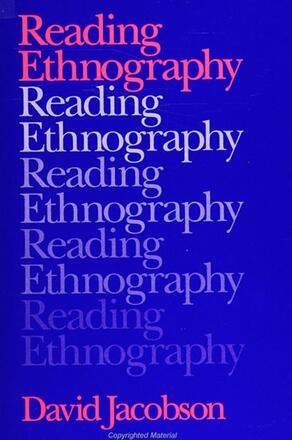
Reading Ethnography
Alternative formats available from:
Description
This book presents a model for analyzing and evaluating ethnographic arguments. It examines the relationship between the claims anthropologists make about human behavior and the data they use to warrant them. Jacobson analyzes the textual organization of ethnographies, focusing on the ways in which problems, interpretations, and data are put together. He examines in detail a limited number of well-known ethnographic cases, which are selected to illustrate basic theoretical frameworks and modes of analysis. By advancing a method for assessing ethnographic accounts, the book contributes to the current debate on the role of rhetoric and reflexivity in anthropology.
David Jacobson is Associate Professor of Anthropology at Brandeis University.
Reviews
"Ethnography is the central activity of the majority of anthropologists. It is the source of our empirical data, the written form our analysis assumes, the principal means by which we advance our arguments, the texts through which we teach our students, and the source for most comparative and theoretical essays we write in our stance as comparative scholars. This is a careful, intelligent exploration of the nature of the ethnography through extended examination of several very well-known examples." — Edgar Winans, University of Washington
"This book deals with one of the most difficult topics in anthropology (viewed from a teacher's perspective); and with one of the most frustrating tasks a beginning—or advanced—student faces in reading material that is central to anthropology. It is unquestionably significant, for good and careful reading of ethnography is basic to first-class anthropology." — Alfred Harris, University of Rochester